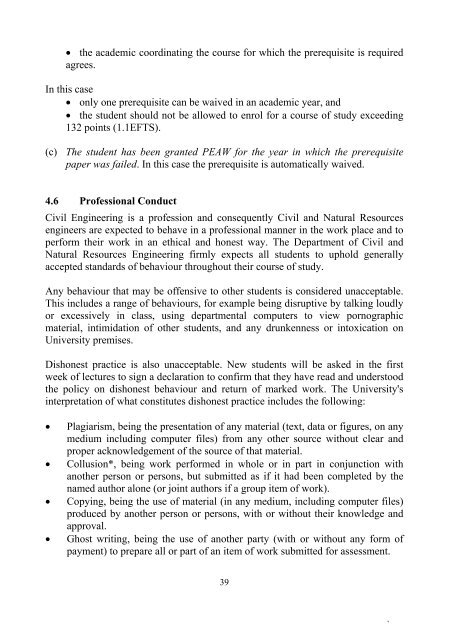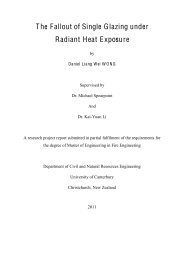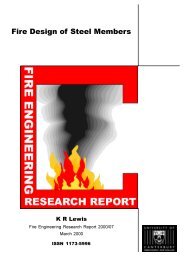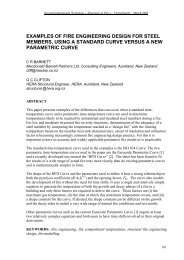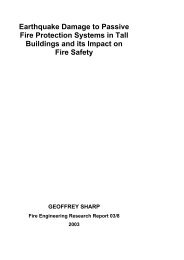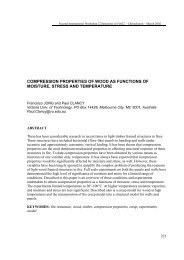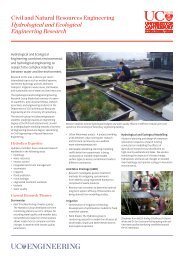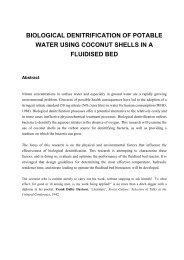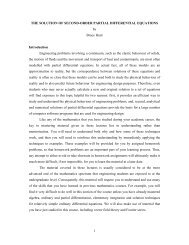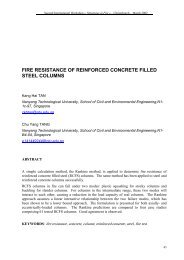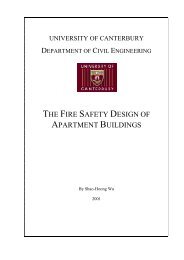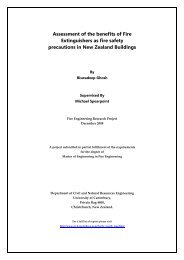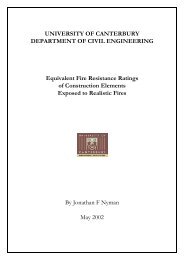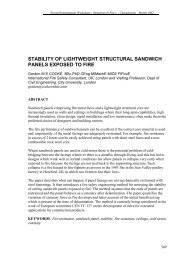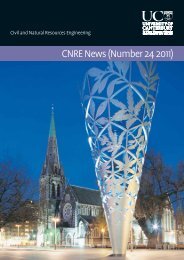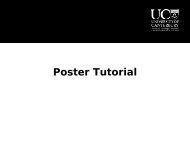University of Canterbury Department of Civil and Natural Resources ...
University of Canterbury Department of Civil and Natural Resources ...
University of Canterbury Department of Civil and Natural Resources ...
You also want an ePaper? Increase the reach of your titles
YUMPU automatically turns print PDFs into web optimized ePapers that Google loves.
• the academic coordinating the course for which the prerequisite is required<br />
agrees.<br />
In this case<br />
• only one prerequisite can be waived in an academic year, <strong>and</strong><br />
• the student should not be allowed to enrol for a course <strong>of</strong> study exceeding<br />
132 points (1.1EFTS).<br />
(c) The student has been granted PEAW for the year in which the prerequisite<br />
paper was failed. In this case the prerequisite is automatically waived.<br />
4.6 Pr<strong>of</strong>essional Conduct<br />
<strong>Civil</strong> Engineering is a pr<strong>of</strong>ession <strong>and</strong> consequently <strong>Civil</strong> <strong>and</strong> <strong>Natural</strong> <strong>Resources</strong><br />
engineers are expected to behave in a pr<strong>of</strong>essional manner in the work place <strong>and</strong> to<br />
perform their work in an ethical <strong>and</strong> honest way. The <strong>Department</strong> <strong>of</strong> <strong>Civil</strong> <strong>and</strong><br />
<strong>Natural</strong> <strong>Resources</strong> Engineering firmly expects all students to uphold generally<br />
accepted st<strong>and</strong>ards <strong>of</strong> behaviour throughout their course <strong>of</strong> study.<br />
Any behaviour that may be <strong>of</strong>fensive to other students is considered unacceptable.<br />
This includes a range <strong>of</strong> behaviours, for example being disruptive by talking loudly<br />
or excessively in class, using departmental computers to view pornographic<br />
material, intimidation <strong>of</strong> other students, <strong>and</strong> any drunkenness or intoxication on<br />
<strong>University</strong> premises.<br />
Dishonest practice is also unacceptable. New students will be asked in the first<br />
week <strong>of</strong> lectures to sign a declaration to confirm that they have read <strong>and</strong> understood<br />
the policy on dishonest behaviour <strong>and</strong> return <strong>of</strong> marked work. The <strong>University</strong>'s<br />
interpretation <strong>of</strong> what constitutes dishonest practice includes the following:<br />
• Plagiarism, being the presentation <strong>of</strong> any material (text, data or figures, on any<br />
medium including computer files) from any other source without clear <strong>and</strong><br />
proper acknowledgement <strong>of</strong> the source <strong>of</strong> that material.<br />
• Collusion*, being work performed in whole or in part in conjunction with<br />
another person or persons, but submitted as if it had been completed by the<br />
named author alone (or joint authors if a group item <strong>of</strong> work).<br />
• Copying, being the use <strong>of</strong> material (in any medium, including computer files)<br />
produced by another person or persons, with or without their knowledge <strong>and</strong><br />
approval.<br />
• Ghost writing, being the use <strong>of</strong> another party (with or without any form <strong>of</strong><br />
payment) to prepare all or part <strong>of</strong> an item <strong>of</strong> work submitted for assessment.<br />
39<br />
`


